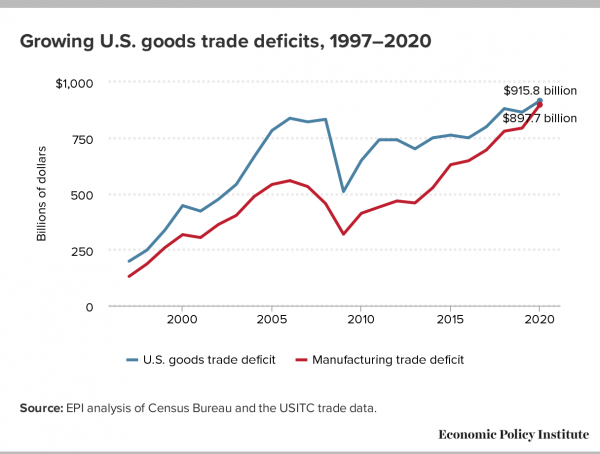https://workingclassstudies.wordpress.com/2021/02/08/what-the-world-needs-now/
What the world needs now is some answers to our problems,
… it looks as though faith alone won't sustain us anymore. – Bad Religion
Last year was a disaster that many did not survive. Many of us will carry deep wounds for the rest of our lives. More than two million people died from the global pandemic that we are still struggling to contain. In the US, unprecedented fires shattered the West, even as nomads from past fires were still seeking shelter and some semblance of a normal life. Strange weather events continued to wreak havoc across the land, whipsawing Colorado from heatwave to snowstorm in a single day. The stock market continued to climb, even as millions were thrown out of work. Police shot Black people in the back, without consequences. Armed militias terrorized peaceful protestors and threatened to kidnap a state governor. And, to top it off, former President Trump refused to leave office, instead inciting an insurrection at the US Capitol in a vain attempt to hold power.
All this makes clear that we have been working without effective leadership for a long time. I don't mean just Trump, although his failures propel us well beyond criminal territory. The problems go back to the years after WWII, when a powerful idea of technocratic rule came into play – as both savior and bogeyman. While the majority of Americans put their heads down and let the experts guide the ship, a significant minority fell sway to paranoid thinking of global conspiracies involving the UN and other unlikely culprits. After 2008, any remaining illusions of capable leadership, whether benevolent or malevolent, have been shattered. It is increasingly obvious that no one is truly in control here. Even the capitalists can't get their act together to save their industries. Instead, they seem to be putting their money into escape plans (to New Zealand bunkers, to Mars).
In a world gone off the rails, all of our politics seem very tired. I don't know if left vs right explains much about what is going on as the ground shifts under our feet, despite the fact that the two political parties like to point their fingers at each other. We argue over the word "populism" and bemoan its capture by fascists. Trumpists call anything they don't like — even neoliberalism – "socialist." Police-loving "patriots" desecrate the US Capitol and wound and kill Capitol Police. Now truly does seem to be the time of monsters, as a new world struggles to emerge.
It is time, I think, to put aside politics with all its confounding labels and partisanship and think about the world we want to live in. What does the world need now? This is not a just a matter of good or bad policies (some of my colleagues have written of these before), but more general thinking on how best to live and work together. Rather than wait for leaders to save us, we should all think about this. I will start from a premise that has been basic to working-class people for many years. An injury to one is an injury to all. Zero-sum politics is a dead end. We need to recognize our interdependence, not just to each other, but to the planet we inhabit. So how can we do this?
First, we have to step back and recognize the huge importance moral recognition plays in human life. For years, the Republican Party has been able to attract voters because they speak in terms of good people and bad people. "Q" built a party by offering up "evil democrats." In contrast, the Democratic Party has talked instead about interests of people and how to meet them. But one of those interests is surely being a good person. Like Andrew Sayer, I blame the academic Left a little bit here for ignoring the fact that morals matter in people's lives. No society can exist long without some sense of what it means to be a good person. If we cede this conversation to those who speak of evil others, we are left with measuring value solely in material terms, and we are defenseless against those who would exploit us.
Because money is not the value of all things, the profit motive should not be at the core of many industries and endeavors. The US Postal Service does not need to make a profit to provide value to us. Those who work in education, healthcare and public service are not in it for the money but rather to do the right thing, help others, and save lives. Forcing these industries to make money or to think primarily in terms of reducing costs is wrong. A sane world would recoil at the very idea of running colleges for profit, privatizing prisons, or making money off of prescription drugs. We need to take money out of politics, refuse to fund for profit colleges and schools with taxpayer money through financial aid and vouchers, demand that our politicians not profit from policies they enact or companies they greenlight, and eliminate the profiteering insurance network from our healthcare system.
Second, we have to work on creating a structure that allows everyone to thrive. The Left has long been committed (at least in words) to a strong safety net, but we need to think bigger here. We should seriously consider universal basic income. This is an idea that has broad appeal across the political divide. In fact, it was first championed by the libertarian thinker Robert Theobald in his 1963 book Free Men and Free Markets . Among other things, Theobald argued that a Guaranteed Basic Income (GBI) would make the contract between employer and employed a truly free one, removed from dire necessity. This would be particularly useful in case of poorly paid "service" work (think here of "essential services"). Republicans grumble that some service workers are choosing unemployment benefits over work, but Theobald would argue that when the work is terrible, even life-threatening, this is a reasonable response. Bad jobs would disappear for lack of demand. This is how markets are supposed to work, right? Not coercive, but free. A GBI could restructure the economic landscape in favor of workers without government regulations.
To thrive, we need to survive. There is no way around it: we need healthcare for everyone, as a matter of collective security at a minimum. And if we want healthcare for everyone, we are going to have to scuttle employer-provided plans. In the midst of a pandemic, hundreds of thousands lost their health insurance along with their jobs. That is not good. We also have to strengthen our infrastructure. The vaccine roll-out is facing many challenges, but one reason for its failure is that our leaders refused to fund the infrastructure to make it work. Instead, the previous administration expected vaccinations to take place at private pharmacies and doctor's offices just like annual flu shots. In a bid to restrict mail-in voting, last year also saw an attempt to defund the US Postal Service. The new administration should recommit to funding a service that is essential to building connections to each other. We also need to fund universal internet access, not as state-controlled operation as in China, but as a public utility with democratic oversight. Last, but certainly by no means least, we need to heal the planet, or at least reduce some of our most earth-shattering impacts.
We also have to remember we are in this fight together. This is a lesson working-class people understand well. Even if you don't like your neighbor, you have to help her out when she falls (as she does you). Working-class people can teach us all the value of solidarity. The enemy is not other people, be they "Evil Democrats" or "wicked capitalists." There is just us. After all, Marx's nemesis was never the individual capitalist (witness his lifetime friendship with Engels), but the system that ensnared workers and capitalists alike.
And, finally, what the world needs now might be some good old-fashioned punk music, the kind that helped many of us through the Reagan era when we thought a nuclear bomb would kill us all. Human creativity that can bring us together. We're all going to have to pitch in this time.
Watched the scientists throw up their hands conceding,
'Progress will resolve it all, '
Saw the manufacturers of earth's debris ignore another green peace call,
No one could tell me what to do,
They had not the ability to answer me,
What the world needs now is some accountability,
We can't buy more time because time won't accept our money,
But faith alone won't sustain us anymore,
Faith alone won't sustain us anymore ….
Allison L. Hurst, Oregon State University
-- via my feedly newsfeed






